February 3-7, 2024
Boston Convention and Exhibition Center
Boston, MA, USA


February 3-7, 2024
Boston Convention and Exhibition Center
Boston, MA, USA
Click on a photo below to learn more about our esteemed mentors to determine with whom you would like to meet.
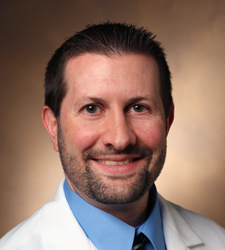
Joshua Bauer
Vanderbilt University
Joshua Bauer, Ph.D., is the Director of the Vanderbilt University High-Throughput Screening (VHTS) Facility and Director of Functional Genomics Screening and High-Content Imaging within the Vanderbilt Institute of Chemical Biology. Bauer has a broad background in pharmacology, cancer biology and biochemistry, with specific experience in oncology-related functional genomics screening (FGS), high-content screening (HCS) and chemical/drug library screening. He currently leads the HTS team with the development of biological assays and screens to enable the discovery of chemical and genetic modulators of a variety of molecular targets and pathways in cell biology for therapeutic implications. His research interests focus on bioinformatics and chemical genomic approaches, including FGS and HCI, to identify novel drug targets and to better understand the molecular and genetic mechanisms that underlie how cells and patient-derived samples (eg, organoids) respond to therapeutics. His main goal is to identify novel strategies to overcome therapy resistance or new indications that will have clinical application.
 Joshua Bauer
Joshua Bauer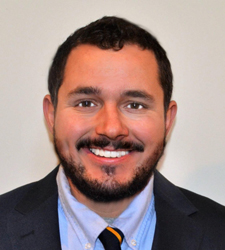
William Borrell
Merck
William Borrell is a Biomedical Engineer with over a decade of laboratory automation experiences. He currently works at Merck as an associate director of robotics, where he brings lab automation to the regulated space. Over his career, he has helped build and develop the laboratory automation business for both Beckman Coulter and Molecular Devices. Borrell is passionate about life science automation, data analysis and considers himself a professional problem solver. In his free time, he coaches youth sports, enjoys woodworkingand home improvement. Borrell has a Bachelor of Science in Biomedical Engineering from Drexel University.
 William Borrell
William Borrell
Kalpesh Gupta
Moderna
Kalpesh Gupta, Ph.D., is an experienced biotech engineer with proven expertise in both wet lab and automation. Gupta has extensive experience in analytical assay development for biologics and downstream automated protein process development, along with experience in automating complex workflows for analytical/upstream and downstream processes and implementing integrated barcoding/LIMS workflows for seamless integration of automation systems to data analytics/LIMS systems. He is also an expert in programming, troubleshooting and modifying current systems within the Hamilton liquid handler.
Gupta leads high-performing teams spanning scientific and engineering disciplines such as laboratory automation, process engineering, technical operations and high-throughput delivery and boasts more than 14 years of experience working in the biotechnology industry ranging from large organizations to small startups. He is passionate about leadership, organizational management frameworks and coaching the next generation of engineers and scientists to achieve their dreams.
 Kalpesh Gupta
Kalpesh Gupta
Shastine Keeney
Zevon Automation
Shastine Keeney has been working in automation for 25 years. She began in industrial automation working in the semi-conductor and fiber optic cable manufacturing spaces. In 2004, she stumbled into biotech and quickly landed at Genentech working with the automation of fermenters and purification systems in the pilot plants. However, because she missed working on equipment that had moving parts, she searched Genentech's internal job postings for the word "robot" which is how she discovered laboratory automation and has never looked back. These days she runs her own very successful one-woman consulting firm, working with clients small and large and in all facets of biopharma from synthetic biology and diagnostics, to early and late-stage drug discovery and beyond. When she's not working, Shastine likes to dance as well as spend time with her two grandchildren and her several cats. Keeney loves mentoring because she loves to help people understand their worth and get perspective on career growth by focusing on what they've already accomplished and how they can feel empowered to move their career in new directions. She is especially attuned to ways that both explicit and implicit bias can impact folks in the workplaceand feels that it is an important part of the discussion about career growth.
 Shastine Keeney
Shastine Keeney
Ross Lagoy has a diverse background spanning academia and early-stage companies in biotechnology and biomedical engineering. He began his career in academia, focusing on developing new robotic and microfluidic screening systems, methods and genetic models of human neurological disease. Since then, he has led initiatives, worked on cutting-edge drug discovery programs, designed and built state-of-the-art instruments and fully automated platforms, and developed low-cost medical devices. Lagoy also contributed to the development of one of the first CRISPR/Cas9 medicines and participated in the launch of a cost-effective next-generation sequencing instrument. He is currently assisting with the development of affordable medical devices for preterm infants in emerging countries while collaborating on the establishment of lab automation courses. He enjoys sharing his experiences as a mentor, consultant and industry expert and likes traveling and outdoor activities.
 Ross Lagoy
Ross Lagoy
Nick Shah
Nura Bio
Nick Shah is a scientist and leader with extensive experience discovering novel therapies for unmet medical needs. He is currently Head of Quantitative Biology at Nura Bio where the team is working to discover novel therapies to halt neurological disease. Previously, Shah was Head of In Vitro Pharmacology at DICE Therapeutics where the team discovered DC-806 (psoriasis) and had a successful IPO. Before that, he was an early scientist at Flexus Biosciences and helped discover Linrodostat (cancer) driving an acquisition by BMS. He also was a project lead at RAPT Therapeutics where the team discovered FLX475 (cancer) and RPT193 (autoimmune disease).
As a volunteer, Shah advises early-stage startup founders through Creative Destruction Lab and Springboard, serves as a judge and career panelist for the BioGENEius Challenge and is a member of the California Life Sciences Racial and Social Equity Committee. Shah completed his Ph.D. at the University of Toronto and a postdoctoral fellowship at Stanford University.
 Nick Shah
Nick Shah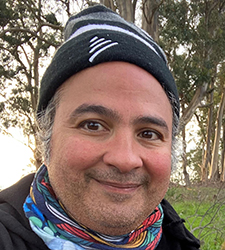
Ary Shalizi
Calico Life Sciences
Ary Shalizi, Ph.D., is a neurobiologist by training, and screening scientist by vocation. He is currently the Group Leader for High-Dimensional Screening at Calico Life Sciences, where he is responsible for implementing high-content assays that combine imaging, genomics and mass spectrometry to further the understanding of the biology of aging. Prior to Calico, Shalizi was a Senior Scientist in the Genomics and Functional Screening group at Synthego, where he led the execution of multiple arrayed CRISPR screens in the oncology and metabolic disease spaces. His first role in industry was developing point-of-care tests for microbial infections. Shalizi completed his doctoral work at Harvard, where he studied the transcriptional regulation of synaptic stability, and his postdoctoral training at Stanford, where he was introduced to small molecule screening through a collaboration with The Broad Institute.
 Ary Shalizi
Ary Shalizi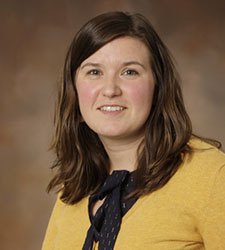
Marla Watt
Merck
Marla Watt, Ph.D., has been in the Quantitative Biosciences department at Merck since 2015. Her interest in cell biology was fostered in high school and led her to ascertain a B.S. in Biology from Lycoming College. During the summers following her junior and senior years of undergraduate studies, she gained her initial experience in drug discovery research by participating in the Merck Summer Undergraduate Internship Program in the Metabolic Disorders Department, focusing on diabetes research. Those experiences helped solidify her desire to pursue a research career, and after gaining some additional hands-on research experience at her undergraduate institution as a senior, she entered into a graduate program in the Medicinal Chemistry and Molecular Pharmacology department at Purdue University, where she employed both chemoproteomic and cell biology techniques to interrogate cellular endogenous cannabinoid transport. After graduating with her Ph.D., Marla remained at Purdue University in a postdoc focused on Parkinson’s disease where she gained experience in fluorescence imaging. With her focus on a career in drug discovery, she entered into a second postdoc at Eli Lilly and Company in the Neuroscience department where she gained experience in drug discovery research, focusing on muscarinic acetylcholine receptor signaling and Schizophrenia. Prior to joining Merck, Marla served as a Senior Research Investigator at Purdue Pharma, LLP in Pharmacology, where she gained expertise in high-content imaging as well as additional experience in GPCR biology. She now leads a small team focused on development of high-content imaging-based and translational in vitro models, supporting programs across the Discovery portfolio.
 Marla Watt
Marla Watt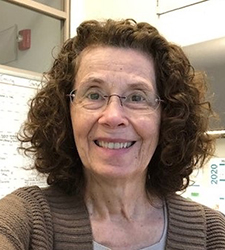
Mary Jo Wildey
Merck & Co., Inc.
Mary Jo Wildey, Ph.D., is the Sr. Director in Screening & Compound Profiling at Merck, focusing on automation and informatics. In her current role, she oversees automation and informatics workflows supporting small molecule high-throughput screening (HTS) with the aim of identifying new chemical matter to support targets in therapeutic areas such as animal health, cardiometabolic disease, immunology, oncology, infectious disease/antivirals and neuroscience. If there’s a robot nearby generating quality data, she’s happy! HTS at Merck uses a matrix-driven resource philosophy, which also adds to one of her life goals of helping scientists to learn and grow in the early drug discovery screening processes.
 Mary Jo Wildey
Mary Jo Wildey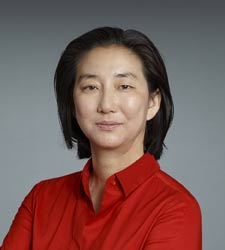
Chi Yun
Stealth Mode NewCo
Chi Yun successfully transitioned from academia to the startup world in 2021 and is excited to share her experience. To date, she has overseen hundreds of diverse, 2D and 3D cell-based, high-throughput screening projects from academic researchers in the New York City area. As an expert in functional genomics, high-content screening and cell-based assay development, she has also presented at high-content analysis meetings, directed courses on best practices for RNAi screening and teaches a graduate course section on automation, screening and data analysis. Yun co-founded the NYU Image Analysis Working Group which discusses software applications, image analysis standards, project based examples and best practices for data retention and is also Chair of the Mid-Atlantic Chapter of the Laboratory Research & Innovation Group (LRIG).
 Chi Yun
Chi Yun